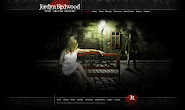Today, author Robin E. Mason concludes her two part series on Dissociative Identity Disorder. You can find Part I here.
The problem with DID is
identifying it. Patients often live with DID for several years before they seek
treatment. Even then, they may go through an extensive process of elimination
before it is properly and correctly identified. The difficulty lies in that its
symptoms are parallel to other mental and emotional disorders, and include:
- Depression, suicidal tendencies
- Mood swings
- Flashbacks, memory problems, selective loss of memory
- Insomnia, night terrors, sleep walking
- Anxiety, panic attacks, phobias
- Alchohol and drug abuse – it is interesting to note that DID is not cause by substance abuse, but may, in fact, trigger it.
- Disorientation and confusion
- Compulsions and rituals – OCD behavior
- Auditory and visual hallucinations
- Eating disorders
Perhaps the hallmark symptom of
DID is its fugue states: periods of time, from minutes to days, in which an
individual has no memory of events, or of time itself. Different personalities, or alters, will surface
in specific circumstances. Each alter splinters off for that purpose, to cope
with various life events. The consensus theory on the cause of DID is extreme
childhood trauma, usually associated with sexual abuse. Triggers can be a
visual setting, a voice, photo, food – any stimuli that brings unwanted
memories to surface. It is at this point an alter steps in to cover for the host or primary personality. Typically
the host has no memory of what his or her alter does. Alter personalities,
however, mostly are aware of other alters and their actions.
Treatment for DID is found
through long-term psychotherapy, hypnotherapy, and/or art, music or movement
therapies. The objective, of course, is to integrate the alters into a singular
and whole – multidimensional - person. As DID is not physiologically induced, there
is no medication to treat it. However, accompanying disorders like depression
or anxiety may be treated with medication and thus alleviate some of the DID
symptoms or triggers.
There is some school of thought
that DID is not legitimate, but is iatrogenic, or that it is created by
suggestion of the therapist. However, brain imaging studies have provided
evidence of physiological changes in some patients.
As for Sybil, some question arose
at the authenticity of her diagnosis. Dr. Wilbur was accused of falsifying her
findings. At one point, Sybil, whose real name was Shirley Mason, admitted to
making the whole thing up. She later recanted that admission.
It seems to me that whatever Dr.
Wilbur’s motivations were, Sybil’s story was not entirely untrue If, on one
extreme, the whole thing was the wild creation of her and Dr. Wilbur, that
speaks of something horribly wrong – which would then be another issue and
sickness. We will never know if what happened in her childhood triggered panic
attacks and black-outs. I believe there was truth in her story, 10% or 100%, I
can’t say. I believe it stirred an interest in the condition, and in turn
childhood abuse.
Previously,
I said I learned why Sybil’s story intrigued me. Not because of sexual
molestation, because I wasn’t. And not because I ever suffered DID, because I
haven’t. But something about her dark childhood rang true with me, however
different that might have been. I felt that I was in a dark hole, unwanted,
unwelcome, and unloved. In that, I can identify with Sybil. And in that, my
fascination with DID and crises of identity. I know now, too, that I am whole,
I am wanted, and I am loved.
******************************************************************************
******************************************************************************
Robin Mason lives in upstate South Carolina where
she began writing as self-proscribed therapy in 1995. Life threw a few
(dozen) (thousand) hiccups and curve balls, and she got serious about working
on her debut novel, Tessa,
in 2013. Robin’s greatest priority and highest calling is to honor God in all
she does, especially with the talents and abilities He’s given her. Like
writing.



















No comments:
Post a Comment